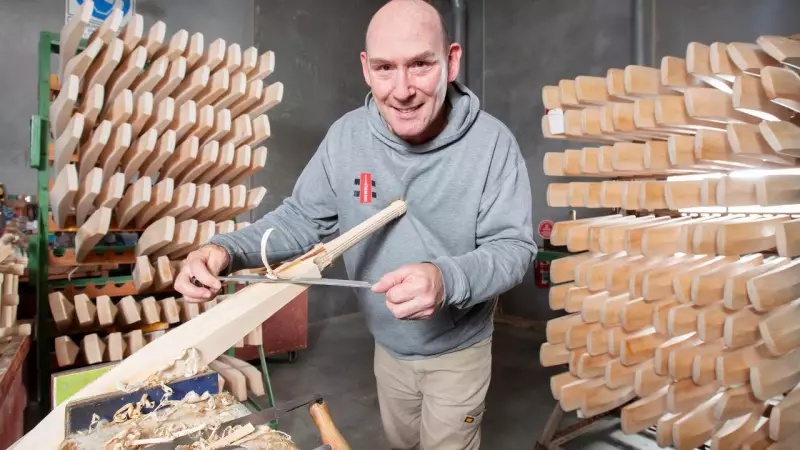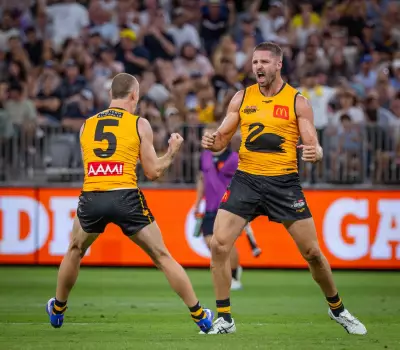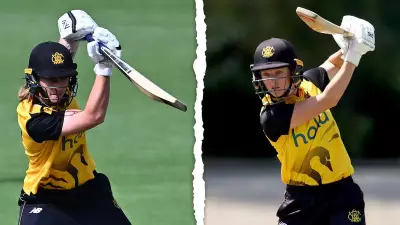
When Australia's cricket stars touch down in Melbourne, there's one essential destination that consistently draws them away from the hallowed turf of the MCG. Just thirty minutes south, in the quiet bayside suburb of Cheltenham, lies a cricketing sanctuary that has been shaping the game's history since 1972.
The Bat Mill: Where Legends Are Forged
Gray Nicolls' Australian bat mill represents more than just a manufacturing facility—it's the birthplace of iconic cricket equipment that has powered generations of Australian cricketers. From the revolutionary Scoop design to the explosive Kaboom model that became David Warner's signature weapon, this workshop produces both game-ready equipment and exclusive collector's items priced up to $2500.
Stuart Kranzbuhler, the head bat-maker with 32 years of experience at Gray Nicolls, has welcomed virtually every major name in Australian cricket through his doors. "All the players come in here at some point—whenever they play in Melbourne they like to come in and have a chat," Kranzbuhler reveals. "Some have a go at making a bat but some get pretty nervous that they'll stuff it up."
Australian Craftsmanship Meets Global Demand
The Melbourne operation represents Gray Nicolls' commitment to Australian manufacturing, celebrating 50 years of local production in 2022, despite the company's English origins dating back to 1875. Today, the Australian arm specifically caters to mid and top-tier markets across Australia and New Zealand, with every product proudly bearing the Australian Made logo.
What makes this operation remarkable is its scale and efficiency. With just five bat makers and three detailers, the team produces an impressive 6000 bats annually. Each bat undergoes a meticulous two to three-hour transformation process that blends modern machinery with traditional handcrafting techniques—pressing, shaping, sanding and finishing.
Kranzbuhler, who personally crafted Warner's famous Kaboom bat, notes how the craft has evolved. "It has changed a lot. When I started, it was a lot more machine-processed, so it was actually much easier. Everyone wasn't so worried about weights and things like that. They wanted them light-ish, but now it's about specific weights."
Adapting to Cricket's Changing Landscape
The explosion of T20 cricket has dramatically increased the demands placed on cricket equipment. Kranzbuhler observes that "when I started, David Boon only really needed two or three bats a year, whereas now players consume up to 15. The T20 form is the most brutal form on the equipment."
This increased demand makes Gray Nicolls' backup service crucial for professional players. The company guarantees a seven-day turnaround for repairs or replacements for Australian and New Zealand international teams—a level of service that Kranzbuhler proudly states "you wouldn't get that from outsourced or overseas brands."
Facing increased competition from India's growing bat-making industry, Gray Nicolls has doubled down on traditional craftsmanship. "We actually went back to hand making the bats a lot more, as India began to get better at what they're doing, to get the best shape and best feel we could," Kranzbuhler explains. "We've put a lot of thought into the pressing technology we use so we stay ahead of the market."
Looking to the future, the company faces several challenges, including climate change affecting the cool weather conditions needed for willow growth. However, the most immediate concern is finding new generations of craftspeople. "There's not a lot of kids getting into manual labour any more," Kranzbuhler notes. "They need an eye for detail, good hand skills, an understanding of the game and the timber."
Despite these challenges, the commitment remains unwavering. For over half a century, Gray Nicolls has maintained its focus on preserving the tradition of Australian-made cricket bats, ensuring that when Australian cricketers need equipment they can trust, there's still a Melbourne workshop ready to deliver.






